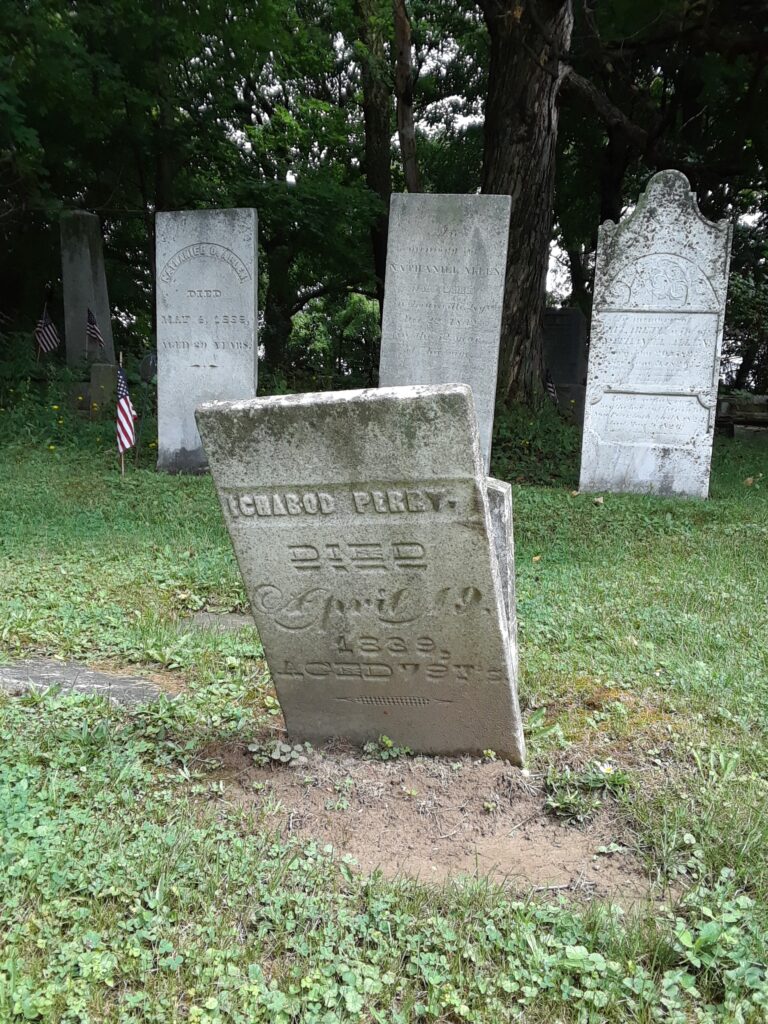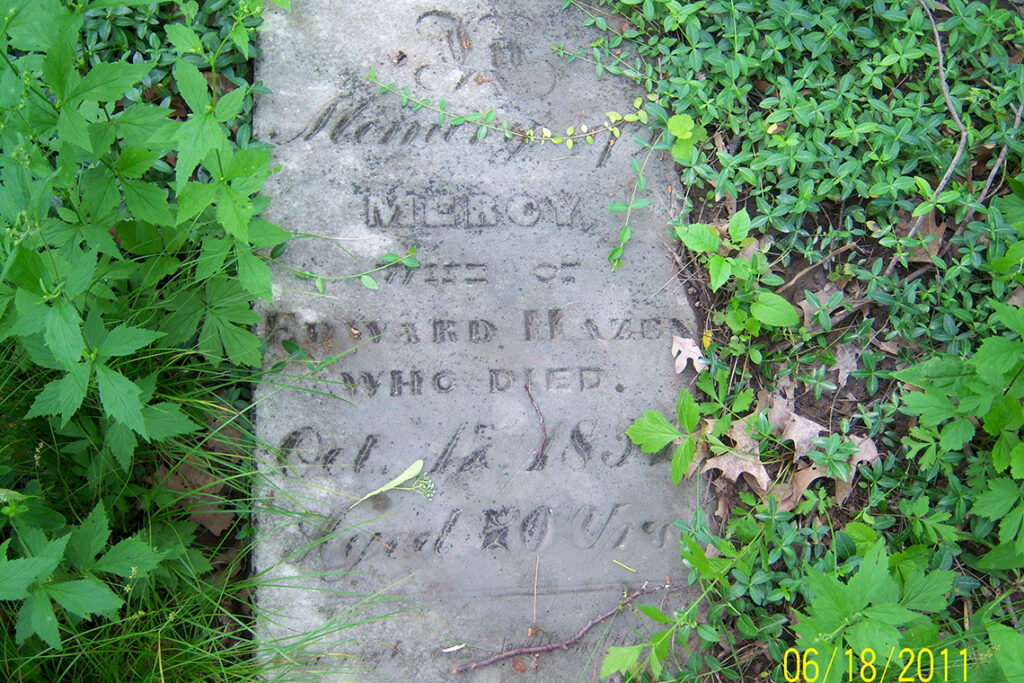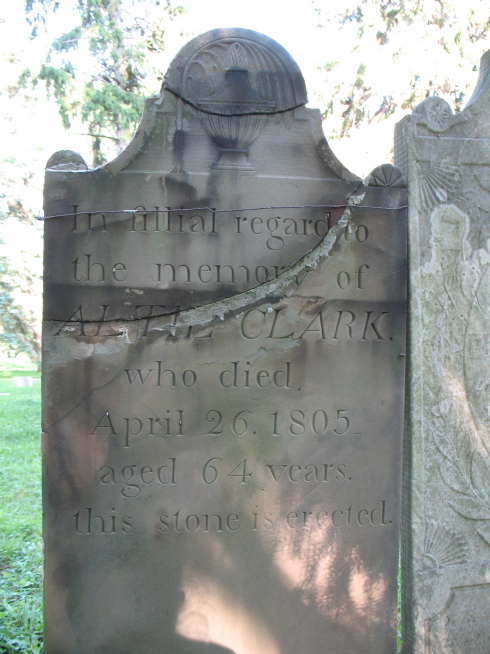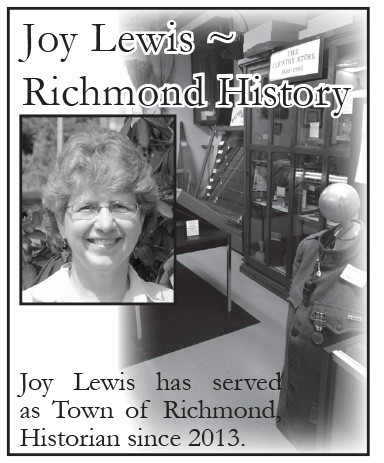Richmond History
- JOY LEWIS
A Legacy of Names
Families of European descent began the migration to the wilderness of western New York late in the eighteenth century. With them they brought the trappings of modern civilization: their iron pots and hand-forged plowshares; spinning wheels and looms; flatware, porcelain dishes, window glass, and stoneware jugs. They brought into the backcountry knowledge of time-honored technologies; they built wooden frame houses, grist mills, and barns. They were current on farming procedures, bringing along their sturdiest cattle, sheep, and mules. Endeavoring to graft the old ways onto the new environment, they retained their traditions, including baby-naming practices.
Among Richmond citizens of two hundred years ago there may be found five distinct naming patterns, names representing various origins and ideals: Classical, Patriotic, Dutch, Surnames, and by far the largest category, Christian. In addition to the common biblical names many modern parents still use – David, Mary, Elizabeth, Michael – there were to be found among early families such Old Testament names as Bathsheba, Barzillai, Eliphelet (a son of Israel’s King David), Perez and Peleg, Ichabod, Jemima and Kezia (daughters of Job).
The story of Ichabod, grandson of Eli the priest, may be found in the book of First Samuel. His name was bestowed upon a baby boy born in Massachusetts in 1779. As a young man Ichabod Holden made his way to western New York where he founded the settlement of Jacksonville just beyond Richmond’s western border in Livonia. Barzillai Briggs (1792-1868), named in honor of a compatriot of King David, was, in 1817, a charter member of the Richmond Baptist Church. His wife, Speedie Short, had not a biblical name, but an interesting one nonetheless. Speedie is a surname of Anglo-Saxon origin, from a root word which means “good fortune.”


New Testament names given to babies of that era included Rhoda, Dorcas, Thaddeus (an apostle), and particular friends of Saint Paul: Zenas, Erastus, Tryphena, Persis, Philemon and Onesimus. Persis Doolittle, born in 1830, was the daughter of Dr. Willard Doolittle and his first wife Emeline Barnard. She grew up, married her cousin Daniel Short, and raised five children in Richmond. Philemon Wright was the Postmaster at Richmond Mills in the 1860s.
Up until about mid-century old-fashioned Puritan names were still given to many Richmond daughters, such names as Content, Charity, Mercy, Submit, Freelove, Desire and Delight, Prudence and Patience, Silence. Submit Garlinghouse (1791-1861), it was said, made the best butter in Allen’s Hill. Boys were named Noble, Oliver (honoring Cromwell), William, and Orange – both names in honor of the Protestant king who ousted the Catholic James II in 1688.
Other Christian-themed names were popular throughout the century. Sophronia Baker (1802-1870) was born in Richmond, the youngest daughter of William Baker and his second wife Margaret Andrus. She was named for Sophronia of Cyprus, a pious woman of the third century.
Married to Isaac Green, Sophronia raised four children on a farm in Rush. Two of her sons, Isaac and David, returned to their family’s roots in Richmond when grown. Ephrata, a Hebrew word meaning “fruitful,” was the name given to baby Effie Guerin in 1839. Her family came from New Jersey and settled in Hemlock, where she grew to womanhood and married Alanson Moffitt. Uriel Akin (1783-1822), named for one of the seven Archangels, was a blacksmith in Allen’s Hill. He is buried in the cemetery there.
Many of Richmond’s earliest settlers were named in honor of classical heroes: Leonidas, Seneca, Zoroaster, Solon, Theophilus, and Socrates. Leonidas Wilbur and Zoroaster Paul were both doctors in Richmond. Dr. Paul (1811-1869) was named in honor of a Persian mystic who lived several hundred years before the birth of Christ. He and his wife Susan had their home in Honeoye for more than a quarter century. Following Dr. Paul was Dr. Wilbur (1832-1911). Named in honor of Leonidas, the fifth century B.C. Spartan king who made a heroic stand at the Battle of Thermopylae, Dr. Wilbur was well-beloved by his patients.
Theophilus Short bore an ancient Greek name (and it might be argued, a biblical one as well, as Saint Luke addressed his two New Testament books to a certain Theophilus). Born in Massachusetts in 1771, Theo came with his parents and siblings to settle at the foot of Hemlock Lake before 1800. A few years later he purchased land in Manchester and founded the village of Shortsville. His cousin, Seneca T. Short (1829-1906), was born in Richmond. His namesake, Lucius Annaeus Seneca, was a Roman philosopher, statesman, and poet of the early first century. Solon of Athens, a sixth century B.C. Greek poet and statesman, is perhaps not as well-remembered today as Socrates, another Athenian who lived two hundred years later. Both men, however, were revered in the early 1800s, and a few baby boys of that time were named in their honor, including Socrates Hopkins (1790-1842) of Bloomfield and Solon Barnard (1844-1877) of Richmond.
Patriotic names abounded all through the nineteenth century; baby boys were named for presidents – Thomas Jefferson, George Washington, Andrew Jackson, William Henry Harrison; or statesmen – Benjamin Franklin, Henry Clay, Alexander Hamilton. Baby girls were named America or Columbia.

Some people living in Richmond then had names reflecting their Dutch heritage: Cornelia/ Cornelius, Heyltje (“Alta”), Jesina (“Sinai”), Garaudus, and Rensselaer. Heyltje Wheeler was married to William Fitch. Four of their six daughters married men who were early settlers of Richmond: Abiel married Nathaniel Harmon; Margaret was the wife of Philip Reed; Jesina married Lemuel Chipman and his brother Cyrus married youngest Fitch daughter Anna. Heyltie, twice widowed, came with her daughter Abiel to Richmond in 1795. She died May 26, 1805, and was the first person to be buried in the Richmond Center Cemetery.
It may seem odd today, but many sons, and some daughters, were given as a first name the surname of their mother or grandmother. Such local examples include Billings, Wheeler, Fitch, Walker, Pitts, and Belknap. “Orsamus” was a surname originating in Connecticut, whose roots have not been fully traced. The name, as a given name, traveled first to Vermont then to New York, where it gained in popularity. Two notable holders of the name were men of Richmond: Orsamus Turner and Orsamus Smith.
Turner (1801-1855), born in Allen’s Hill, was the son of Roswell Turner and Caty Allen. In his later years he produced two important volumes: Pioneer History of the Holland Purchase of Western New York (1849) and History of the Pioneer Settlement of Phelps and Gorham’s Purchase and Morris’ Reserve (1852). Orsamus Smith (1798-1878) was born in eastern New York; he was about ten when he came with his parents to Allen’s Hill. He became an eminent Episcopal minister, serving for a number of years in Moravia, Cayuga County. On February 5, 1826, he officiated at the marriage of Mr. Millard Fillmore and Miss Abigail Powers. A quarter century later Fillmore was inaugurated the thirteenth president of the United States.
Naming trends are an interesting study, as changing patterns may be discerned through time. Our forebears, by leaving behind established communities and moving beyond known boundaries, sought to unite tradition with progress. The values and customs they brought with them to the wilderness are clearly reflected in the names they chose for their sons and daughters.
